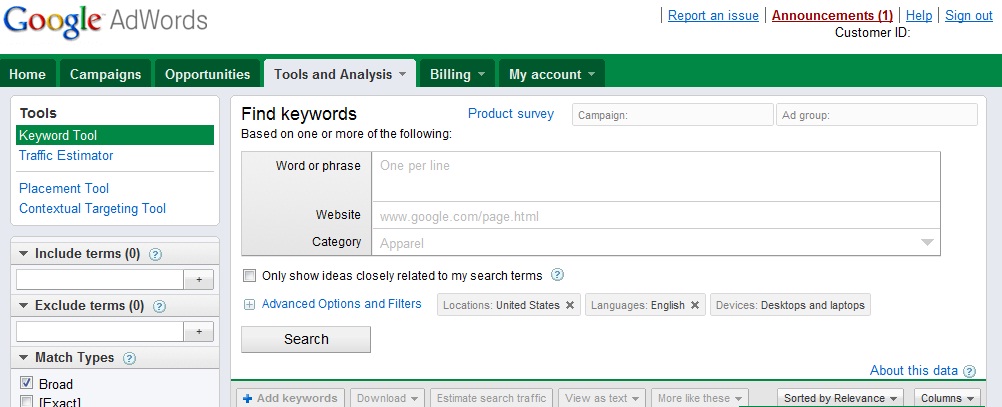
Keyword optimization is something that you will have to learn to make your website search engine optimized. This is important if you want your website to have a high number of visits every day.
Just to give you a quick recap about SEO, it is a common Internet strategy that focuses on making a website search engine friendly. This will allow it to obtain a higher search engine position. There are several ways that you can do that but it mostly revolves around keywords.
If you have your own website, you need to live and breathe the proper use of keywords. This is where keyword optimization becomes an important strategy that you have to learn.
DEFINING KEYWORDS

Keywords work as identifiers. It helps search engines identify if a particular website is relevant to the words encoded by a user in search engines. When Google deems you relevant in the search through your main keyword or those on the content of your site, you will be included in the list that will be shown to the user. When your website is placed in the first page of the search engine result page, the chances of the user visiting your site will be higher as compared to appearing on the tenth page.
The main keyword or phrase that you will use should be properly optimized in the following areas of your website: domain name, heading tags, meta-tags, image alt tags, title tags, content, and links.
KEYWORD OPTIMIZATION TIPS
Recently, the Google search engine altered its algorithms to ensure that the search results will come up with quality listings. Because of that, website owners and SEO managers give more importance to keyword optimization than before.
To help you keep your site keyword optimized, here are a few tips that you might want to look into.
1. Choose the Main Keyword
Every website must have one main keyword or key phrase. There are tools that can help you in your search. One of them is Google Adwords. Aim for the popular keywords that have low competition. The challenge is choosing one keyword that you will use on your site. If you choose the right keyword, then you are on your way to driving a lot of traffic to your site.
2. Keyword Density
Keyword optimization also involves keyword density. The common practice among writers is 3-5%. However, I always use keywords once every 100 words and it worked out just fine. Make sure you do not overstuff your content with keywords because search engines do not like this. They will probably ignore your content if they detect too many of the same keywords.
3. Keyword Placement
In keyword placement, there are three places that search engines usually look at: first, middle, and last paragraph. Given that, place your keywords in the first sentence of these paragraphs. Distribute them in between if your content is more than 300 words.
4. Use Keyword Synonyms
Another tip that I can give you is to use synonyms. For instance, this website has a domain name of www.earnathomeph.com. It is natural that I use “earn at home” as my main keyword. If I keep using that same phrase in my content, that will not be keyword optimization. That will be keyword stuffing. Synonyms like work from home and working at home can be utilized so my website will not be charged with keyword stuffing.
5. Stay Updated
Keyword optimization also means you have to stay on top of the changes made by search engines. I highly encourage you to stay on top of this by keeping tabs on new SEO rules. That way, you can revise your SEO strategy to maintain your search engine ranking in result pages. Try reading through forums and other social media strategy sites for more information.